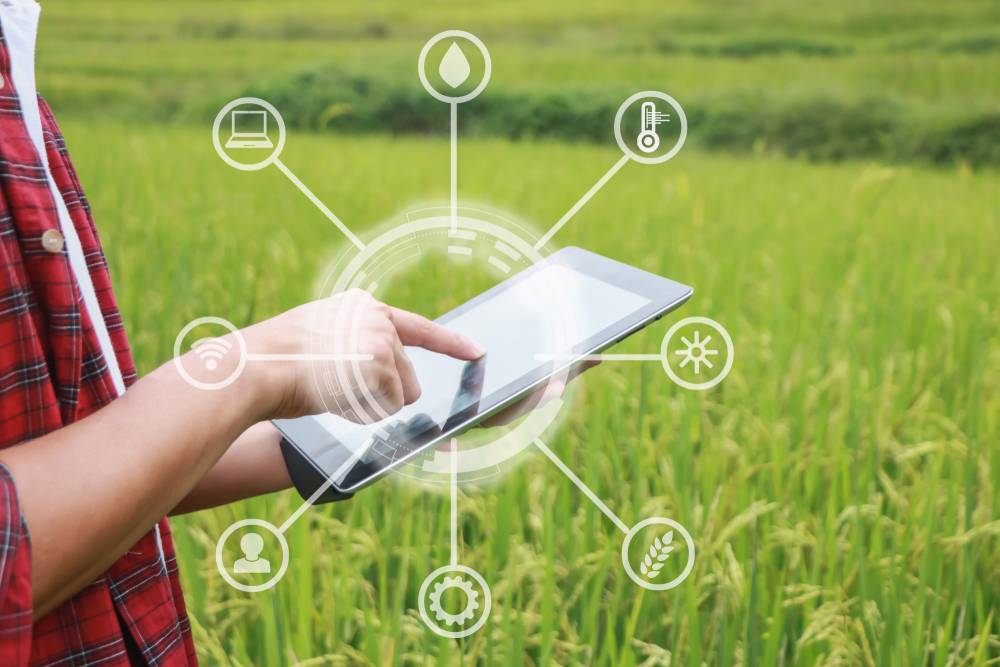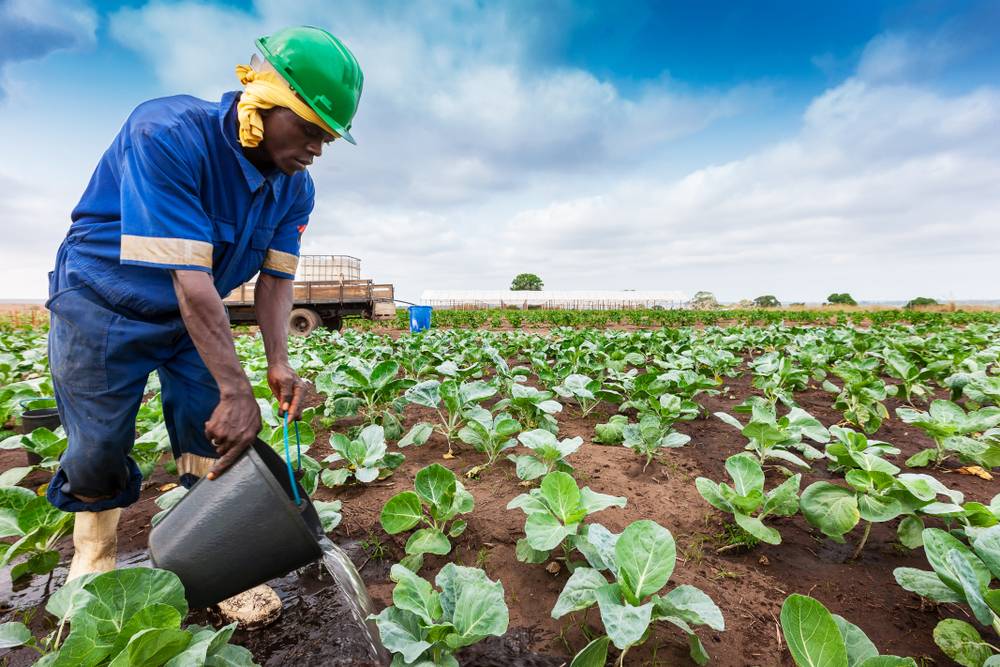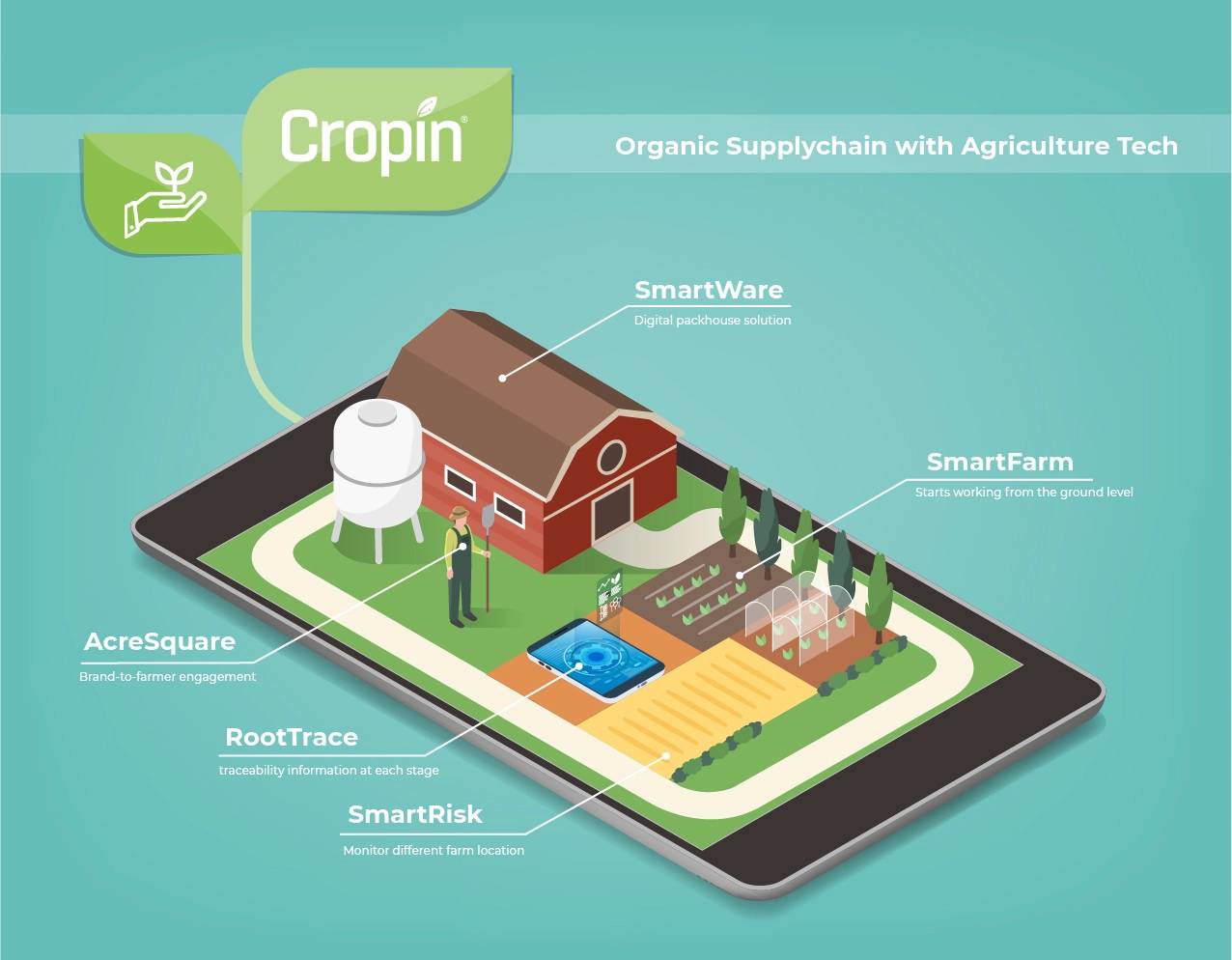Organic agriculture constitutes a holistic production management system that focuses on safeguarding the health of soils, ecosystems, and, consequently, the people. It combines traditional farming practices with scientific knowledge of ecology and modern innovations to support sustainable biological cycles. The International Federation of Organic Agriculture Movements (IFOAM) states that organic culture centers on the four guiding principles of Health, Ecology, Fairness, and Care that inspire eco-friendly agriculture.
Eco-friendly Is the Way to Go
The terms organic farming and agriculture tech have picked up and for all the right reasons. Consumer awareness regarding the health and environmental benefits of organic food is on the rise. It has transformed what was once a supply-driven market into a demand-driven one. As of 2019, organic agricultural land, including in-conversion areas, accounted for 72.3 million hectares across 173 countries, according to the World of Organic Agriculture Statistics and Emerging Trends 2021.
Organic pays well too, and for this reason, producers are becoming actively aware of their production means. A recent report suggests that the global market for organic food and beverages could reach USD 849.7 billion by 2028. This is a massive opportunity for producers, processors, and distributors, offering them a better growth scenario.
Profits have already started rolling in. 2015-2020 saw a 16% CAGR for the global organic food market. Opting for eco-friendly agriculture will, therefore, not only help improve the quality of produce but also reduce the strain on our lands.
One can attain the desired results from agriculture only if a streamlined production process is being followed. And this process needs to be traceable at every step of the way.
For a crop to be certified as organic, it all comes down to the means and methods of production. To ensure farmers adhere to the rules and regulations and the produce is of the superior grade, the judicious use of agriculture tech is highly crucial.
With the correct implementation of AgTech, production investment will go down, and profitability will increase. AgTech will also make compliances throughout the supply chain hassle-free, uniform, and more accessible.
It will guarantee that the product is genuinely organic, thereby increasing the consumers’ trust in the brand. Further, with improved quality, exporting products will also become more compliant. After all, every quality standard needs to be met.

Cropin & Agriculture Tech: Linking All the Elements of the Supply Chain
Organic agriculture is governed by several rules and regulations for all areas of production. Nearly every country has its own regulatory body that establishes a certification and accreditation system to ensure that organic products meet standard quality. Producers need to be aware of these preconditions to market their products as organic as it essentially provides evidence of eco-friendly agriculture.
This is where agriculture tech plays a key role. With Cropin offering innovative and effective solutions for end-to-end digitization, optimizing the organic supply chain now becomes a lot easier.

We, at Cropin, understand that change needs to begin at the source. To make the most out of technology throughout the supply chain, digitization starts right at the farm level.
Monitor Crop Production to Produce Optimum Yield
- SmartFarm starts working from the ground level, literally. With this award-winning SaaS solution, the process begins even before sowing. Field agents provide active assistance for pre-planting, sowing, nutrient management, and crop protection activities to ensure quality from the very beginning. SmartFarm also allows farming companies to monitor the performance of the individually-mapped farm plots to ensure optimum yields.
Such activities boost harvest while reducing the producers’ and the associated brand’s investment in the particular crop. Moreover, farmers become more aware of the practices aiding eco-friendly agriculture, thus keeping the land fertile in the long term. SmartFarm also ensures that all food safety and quality standards are met. - Brand-to-farmer engagement and interdependence are further strengthened with AcreSquare. With this agriculture tech product, agribusiness can connect directly with the different stakeholders on a single platform to increase efficiency and productivity. If particular produce is not going as per the plan, personalized alerts can be sent to the farmers to take necessary actions. The app eliminates physical visits, particularly when social distancing has become the norm globally.
Further, it allows the farmers to receive timely reminders, keeping them on the right track. For instance, businesses can share alerts and crop advisory, weather forecasts and weather-based disease predictions, and updates on government and bank schemes. AcreSquare’s mobile app also facilitates the sharing of training material, and other shareables like images, PDF and word documents, videos, and web links can also be provided to farmers for better comprehension and compliance. - With SmartRisk, farming companies that have farms located in different parts of the country can closely monitor them from wherever they are. They can assess crop health on a continuous basis and identify potential threats to take corrective action before they cause any significant damage. SmartRisk’s remote monitoring also serves as a reliable method to estimate yield at plot- and regional levels and identify the right time to harvest through satellite monitoring. SmartRisk couples remote sensing with advanced AI/ML capabilities to provide actionable and predictive insights for the entire area under cultivation with a high level of accuracy.
Provide Evidence of Food Safety and Quality
- What else can make organic products better than end-to-end traceability? For this, RootTrace can be put to the best use. It can register traceability information at each stage, including farmer’s code, name, and picture; farm plot’s name and address/location; SKU unit/quantity; crop variety; batch number; and QR code batch number. RootTrace improves transparency and makes it possible for customers to track the product all the way to its origin. Using the mobile app, customers can scan the patented, clone-proof QR-code stickers on the product labels to view the traceability information and verify the product’s authenticity.
- Ensuring compliance is an integral part of the organic supply chain, and this extends beyond crop production. The movement of products along the supply chain needs to be also monitored closely to mitigate risks and improve food safety. Cropin’s SmartWare is a digital packhouse solution that streamlines inventory management, ensures quality compliance, and enables effortless certification against a variety of global standards to guarantee the highest quality of food for consumers and the brand loyalty that the producers deserve.
SmartWare simplifies day-to-day operations for contract farming companies, food and beverage companies, and exporters. For every inventory item that the packhouse receives, SmartWare can capture details such as the supplier’s name, date of entry, the item’s lot/batch number, SKU (stock-keeping unit), location, and more. Each inventory item is then assigned a unique QR-code to include in a customisable label. Actions on an inventory item, including write-off, audit, and transfers to other locations, can also be recorded.

With Cropin’s products, traceability is truly farm-to-fork. They aid in quality harvest and eliminate the chances of food fraud, thus keeping food safety intact. Hence, with Cropin’s centralised platform, brands can keep an easy tab on all production and distribution activities and optimise them for better results.
Several brands have already benefitted from utilising agriculture tech for eco-friendly agriculture. With this, brands have successfully achieved standardisation of practises, opening a gateway into the global market. When clubbed with end-to-end traceability, it makes the product easily traceable besides assuring the consumer’s faith.
As people are getting drawn more towards organic products, agribusinesses will soon witness their CAGR rising even further. Agriculture tech will speed up the revenue cycle and increase resource efficiency, thereby generating a higher ROI.
Looking for a solution to manage organic farming? We may have exactly what your enterprise needs. Get in touch with us to discover how Cropin’s digital solutions can add value to your business.






